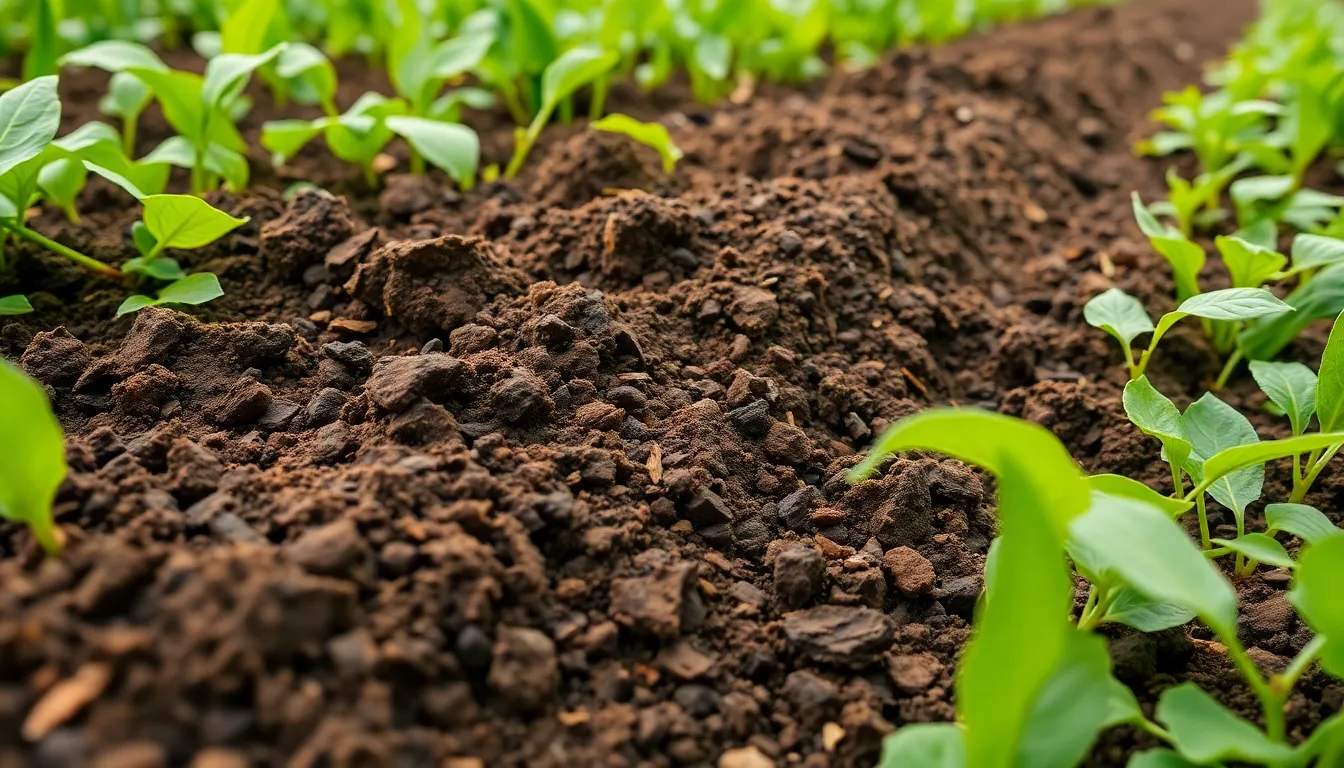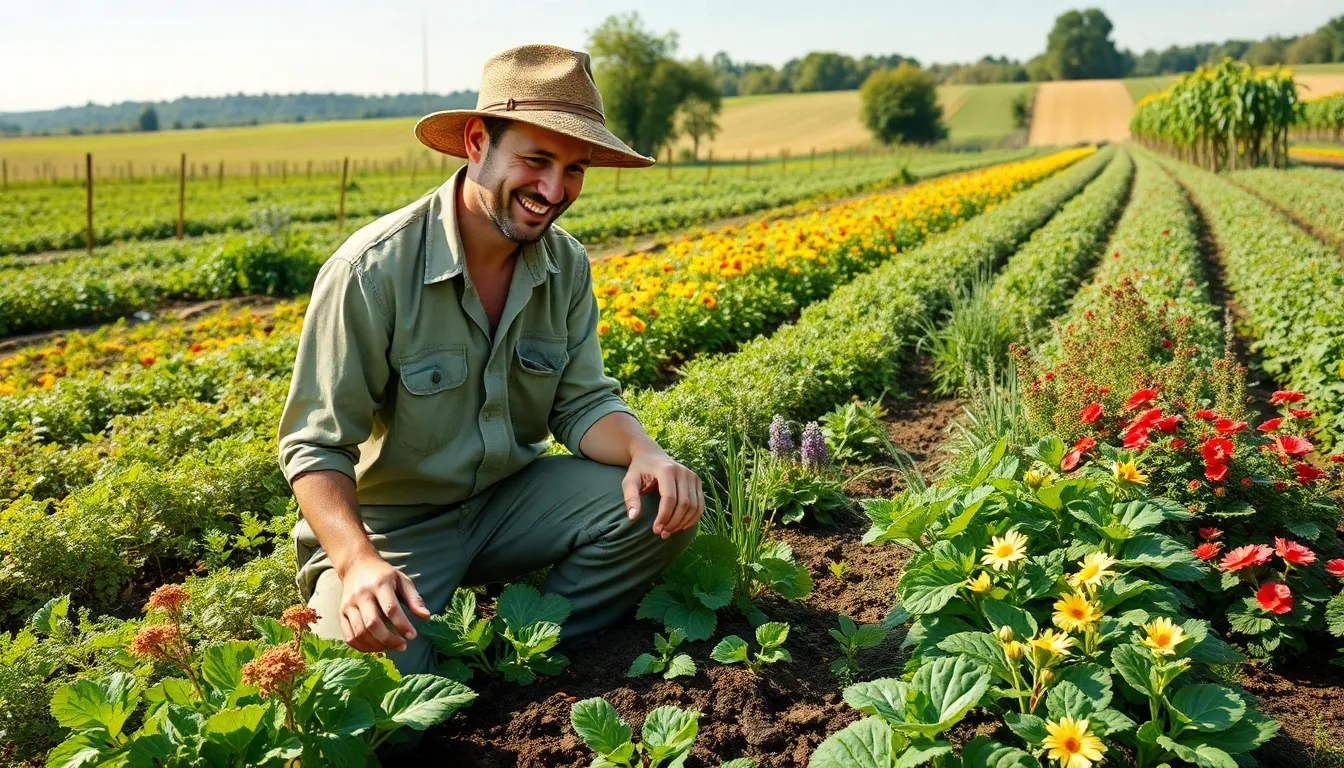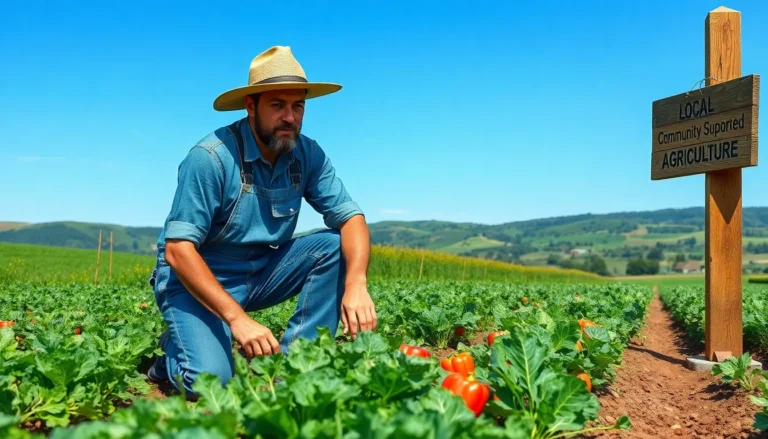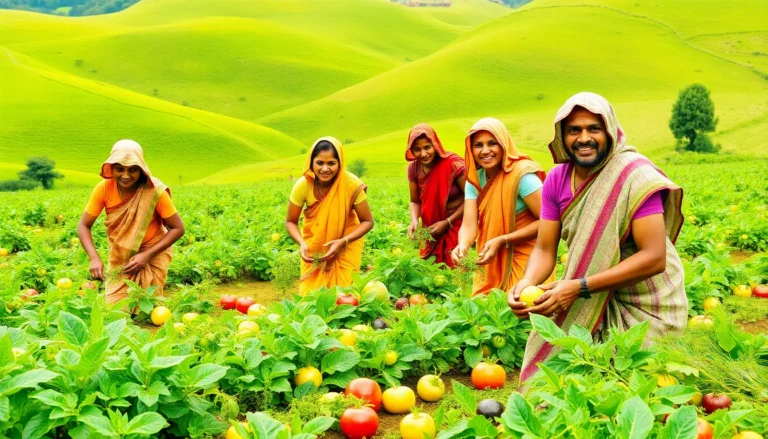
Principles of Organic Farming: Unlocking Benefits for Health and Sustainability
Imagine biting into a juicy, sun-ripened tomato that tastes like it just jumped off the vine and into your mouth. That’s the magic of organic farming. It’s not just a trend; it’s a return to the roots—literally. By following the principles of organic farming, growers nurture the land while producing delicious and nutritious food.
But what does it really mean to go organic? It’s about more than just avoiding pesticides and fertilizers. It’s a holistic approach that respects nature’s balance, promotes biodiversity, and fosters healthy ecosystems. So, whether you’re a seasoned farmer or a weekend gardener, embracing these principles can transform your soil, your crops, and your taste buds. Get ready to dig deep into the world of organic farming and discover how it can benefit both you and the planet.
Principles of Organic Farming
Organic farming is a sustainable agricultural practice that prioritizes ecological balance. This method eschews synthetic fertilizers, pesticides, and genetically modified organisms. Instead, it focuses on natural processes and materials to enhance soil health and crop productivity.
The principles underpinning organic farming encourage biodiversity, fostering a balanced ecosystem. Crop rotation, cover cropping, and composting stand as key practices to maintain soil fertility and prevent pest buildup. Many farmers utilize these techniques to reduce reliance on chemical inputs, promoting sustainable land use.
Additionally, organic farming emphasizes humane treatment of livestock. Animals raised organically must have access to outdoor spaces, permitting natural behaviors. This welfare consideration aligns with the overall philosophy of caring for the environment.
Organic certification serves as a guarantee for consumers, ensuring products meet specific standards. They include guidelines on various agricultural practices, from soil management to pest control. A rigorous inspection process verifies adherence to these standards, providing transparency in the market.
Today, organic farming not only supports healthy ecosystems but also appeals to consumers seeking high-quality, pesticide-free products. Shoppers increasingly prioritize nutrition and environmental impact, driving demand for organic goods. The market for organic produce continues to grow, reflecting a collective shift towards sustainable practices.
Organic farming embodies a holistic approach to agriculture. It nurtures the land, supports biodiversity, and guarantees better food quality. Embracing these principles fosters a healthier planet while meeting the needs of both producers and consumers.
Key Principles of Organic Farming


Organic farming rests on several core principles that enhance sustainability and promote environmental health.
Soil Health and Fertility
Maintaining soil health stands as a foundational aspect of organic farming. Natural amendments, such as compost and green manure, improve soil fertility without synthetic chemicals. Crop rotation enriches the soil by alternating nutrient demands, which preserves balance. Cover crops add organic matter and prevent erosion, further improving soil structure. Regular soil testing helps farmers understand nutrient levels and pH balance, allowing for informed amendments. Healthy soil serves as the basis for vibrant crops, ensuring long-term agricultural productivity.
Biodiversity and Ecosystem Balance
Biodiversity fosters resilience within farming systems. Organic farms often include various crops and native plants that attract beneficial insects and pollinators. Diverse plantings reduce vulnerability to pests and diseases, creating a balanced ecosystem. Maintaining natural habitats around fields supports wildlife, promoting ecological stability. Crop diversification increases the farm’s overall productivity and protects genetic resources essential for food security. Diverse ecosystems provide numerous benefits, from improved pollination to enhanced nutrient cycling.
Pest and Disease Management
Effective pest and disease management relies on natural methods in organic farming. Integrated pest management strategies combine biological controls, such as beneficial insects, with cultural practices to minimize crop damage. Monitoring pest populations plays a crucial role in identifying threats before they escalate. Implementing physical barriers, such as row covers, protects crops without chemicals. Crop rotation disrupts pest life cycles, further reducing infestations. By prioritizing prevention and adopting eco-friendly practices, organic farmers sustain their crops while safeguarding the environment.
Benefits of Organic Farming
Organic farming offers numerous advantages, impacting the environment, health, and economic sustainability. Through diverse practices, organic methods create lasting benefits for both producers and consumers.
Environmental Sustainability
Organic farming enhances environmental sustainability by promoting natural ecosystems and minimizing pollution. Soil health takes priority through the use of organic amendments like compost, which enriches structure and nutrient content. Conservation efforts foster biodiversity, as diverse plant species attract beneficial insects and pollinators. Water conservation becomes essential, as organic practices often include techniques that reduce erosion and preserve water quality. Reducing synthetic chemical use contributes to healthier ecosystems, decreasing contamination of soil and water resources. Overall, organic farming supports ecological balance while ensuring productive agricultural systems.
Health Benefits
Health benefits associated with organic farming are significant for consumers. Organic products typically contain fewer pesticide residues, resulting in safer food choices. Nutritional content may also be higher, as studies suggest organic crops can provide more vitamins and minerals. Additionally, the absence of synthetic additives and preservatives aligns with preferences for whole, natural foods. Eating organic also helps reduce exposure to harmful chemicals, improving overall wellness. Livestock welfare improves through organic standards that mandate humane treatment, ensuring consumers receive high-quality animal products. By choosing organic, individuals make healthier choices for themselves and their families.
Challenges in Organic Farming
Organic farming faces significant challenges that can impact its growth and adoption. Understanding these obstacles is essential for advancing sustainable practices.
Economic Challenges
Economic factors pose a substantial hurdle for organic farmers. Organic products often have higher production costs due to labor-intensive practices and the need for certified organic inputs. Farmers may struggle to compete with conventional products, as price sensitivity among consumers affects their willingness to pay more. Profit margins, while potentially higher, can fluctuate greatly based on market demand and seasonal variations. Data shows that organic farming generally requires a longer investment period before realizing financial returns. Limited access to capital further complicates the situation, making it harder for new farmers to enter the organic market. To overcome these challenges, farmers often seek grants, loans, or cooperative marketing strategies to enhance their financial stability.
Knowledge and Skills Gap
A significant knowledge and skills gap exists in organic farming. Many farmers lack access to specialized training on organic practices, soil management, and pest control. As conventional farming techniques dominate the education system, prospective organic farmers often find themselves unequipped to navigate organic-specific challenges. Conferences and workshops sometimes provide additional resources, but attendance can be limited, particularly for those in remote areas. The absence of robust extension services compounds this issue. Farmers who desire to transition to organic methods may face difficulty in finding mentors or established networks to guide them. Closing this gap requires targeted educational initiatives and support systems that emphasize practical organic farming skills and knowledge.



